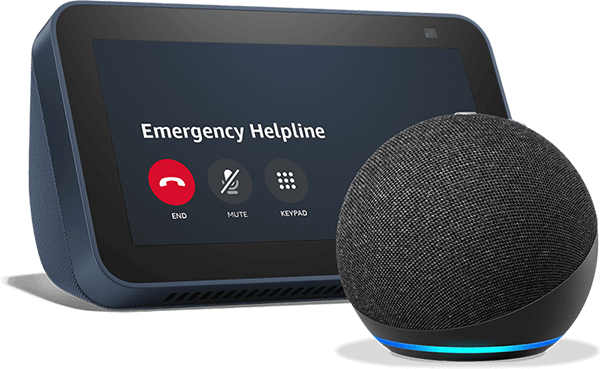
Aging in place, or living at home for as long as possible, is a common goal for older adults. Aging in place can become more difficult as new conditions and diseases come into play. Fortunately, some resources can support seniors with their challenges to make aging in place a safe option. One major challenge that can come with aging is managing a regimen of prescribed medications, over-the-counter pills, and additional vitamins or supplements. Here, we describe medication reminders, medication management, and medication administration, which are services that make managing medications easier.
Challenges in managing medications
The Centers for Disease Control and Prevention reports that about 70% of seniors use at least one medication daily and around 20% use five or more prescription medications daily. The amount of medications a senior takes can be challenging to organize and manage, even with a pillbox and set reminders on a smartphone. The challenge only increases as the older adult adds over-the-counter medications, supplements, and vitamins.
Systematic reviews have shown that older adults have a higher risk of medication error and injury when they attempt to manage more than one medication daily. Cognitive decline, lack of social support, and decline in physical abilities are also contributing factors that can cause medication errors that may lead to emergencies.
If your older loved one takes daily medications, they don’t have to do it alone. Some in-home medication support services can assist in ensuring that your loved one takes the right medications in the right dosage at the right time.
Medication reminders
Nonmedical home care agencies, assisted living, and some independent living communities offer medication reminder services. This service provides verbal and physical cues to remind the senior to take their medication at the assigned time.
Medication reminders are given by a specially trained certified nursing assistant (CNA). The caregiver tells the individual it is time for their medication, and they supervise them while they take their medications. The caregivers double-check the timing and dose of the medicine, but they do not touch the medication or provide hands-on assistance with administering it.
Medication reminders are an excellent option for a senior who might simply feel overwhelmed by their medication schedule.
Medication management
Another service provided by medical home health care agencies, assisted living, memory care, and some independent living communities is medication management. Medication management services include medication reminders as well as physician coordination and communication.
A nurse is in charge of medication management services. They develop a schedule for medication reminders that a CNA can then carry out. The nurse communicates with the senior’s physician regarding new medications, observations, and side effects. They will also work with the individual’s preferred pharmacy to order new medications and refill previous medications.
Medication management is an excellent option for family members who cannot juggle physician communication, pharmacy visits, and organizing their loved one’s medications.
Medication administration
The most complex service for seniors who need support with their medication is medication administration. This is the physical act of giving medications. Administering medications can include giving injections or intravenous medicines as well as medications given on a sliding scale, which entails progressively increasing dosages at certain times of the day.
Only a licensed clinician, typically a nurse, can provide medication administration. These services are medical in nature, so you will not find them in a nonmedical home care service menu. Instead, you’ll see medication administration offered by medical home health agencies, private nursing agencies, and skilled nursing facilities.
Medication administration is a good solution for seniors with more complex medical needs who cannot get to and from outpatient clinics regularly. Depending on your loved one’s needs, you might be able to offset costs for these services through Medicare, Medicaid, or other insurance.
When to seek support
Medication errors are more common than you might think, especially in the senior population. This is why it is crucial to seek medication support sooner rather than later. Consider looking for support in the home if you’ve witnessed any of these situations:
- • Your loved one is overwhelmed by their medication schedule.
- • Your loved one has been prescribed new medications in the past month.
- • Your loved one takes more than four medications.
- • Your loved one has made a medication error before.
- • You live far away and cannot organize your loved one’s medications in a pillbox or other system.
- • Your loved one isn’t getting their medications refilled on time.
- • Your loved one needs injections or medications on a sliding scale.
You can find in-home support from nonmedical or medical home care agencies, depending on your needs. When you call for a consultation, inform the agency that you are looking for medication support and describe your current medication concerns.
Although medication needs can become more complex with age, there are solutions that ensure your loved one safely and properly takes their medication. Medication reminders, medication management, and medication administration are all viable options for people with different needs. By properly assessing the situation and choosing the right service, you can have peace of mind that your loved one is safely sticking to a medication schedule.








